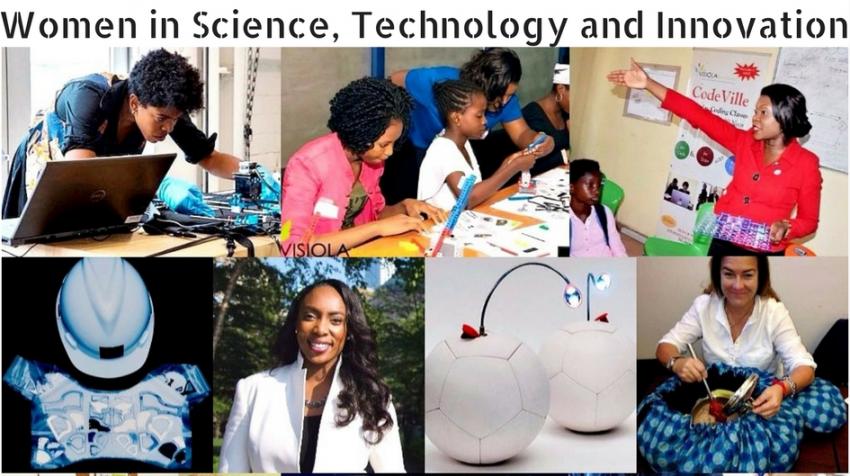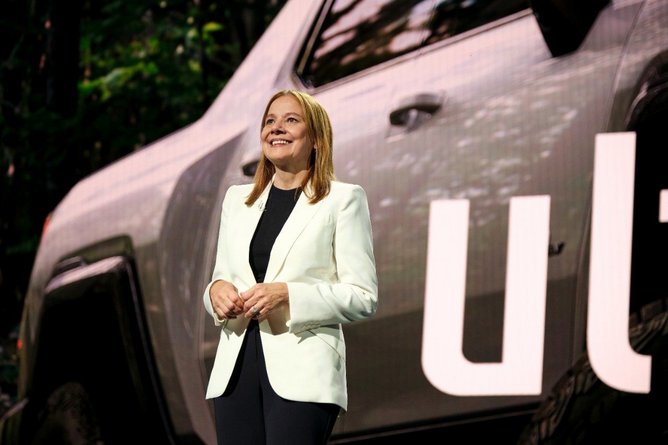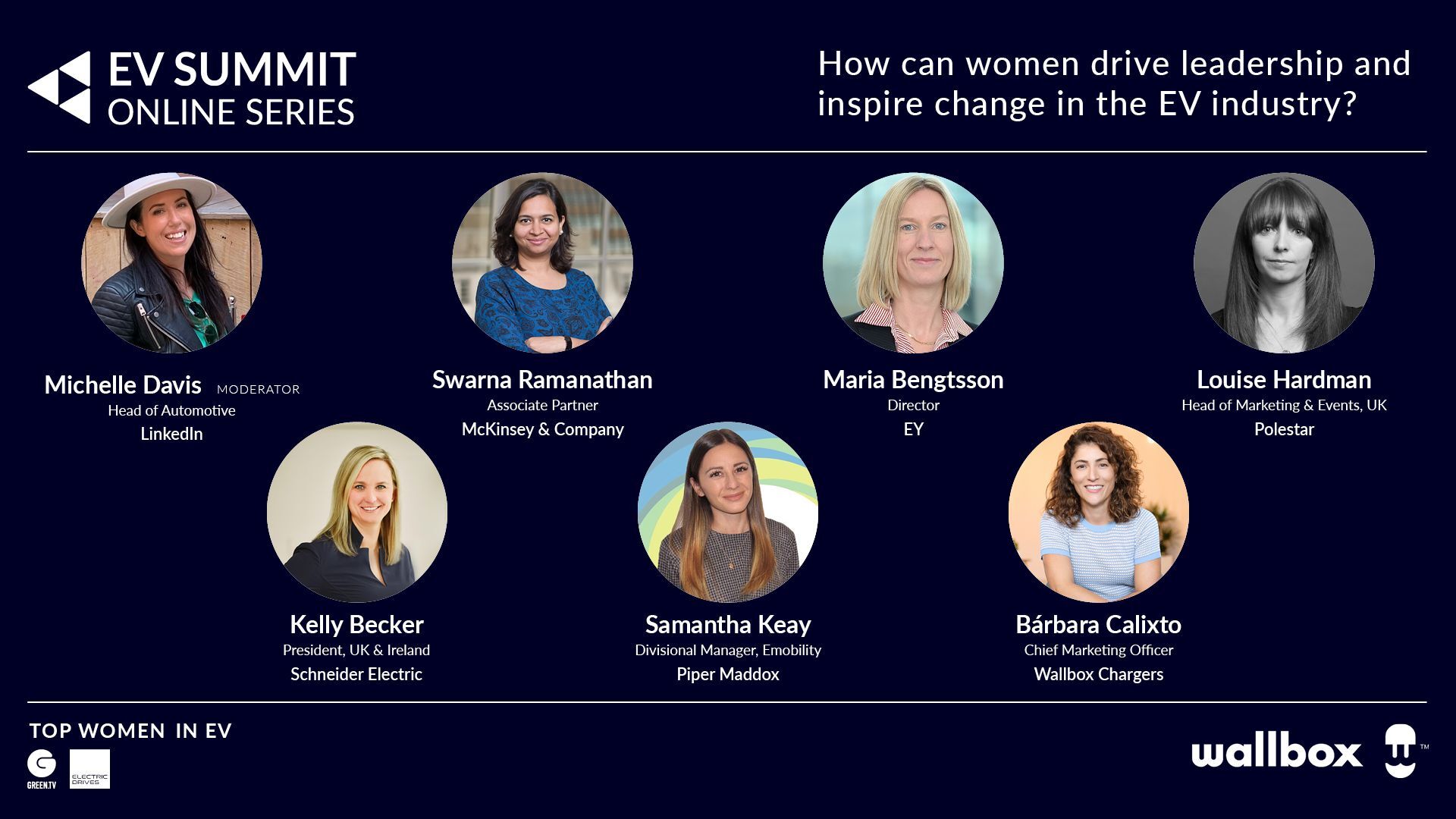As the electric vehicle revolution gathers pace, it’s the perfect time to cast the spotlight on the women who are fuelling this renaissance. From engineers to CEOs, they are breaking barriers, innovating, and propelling the industry forward. These women are setting new standards and outpacing the traditional norms that have long characterized this starkly male domain. Let’s buckle up for a thrilling ride into the realm of women who lead and innovate in the EV industry. Are you ready?
Pioneering Women in the EV Industry

Electric vehicles (EV) are a global conversation, making revolutionary changes in the transport industry. Amidst this energetic dynamism, there’s a host of trailblazing women who are not just taking the helm, but radically reshaping the course of this industry with their indomitable spirit and innovative approach.
To begin, Rivian’s Director of Vehicle Integration, Laura Schwab, previously the President of Aston Martin Americas, is no stranger to breaking glass ceilings in the traditionally male-dominated auto industry. A woman in command, she has taken the reins of this promising start-up to lead the assembly of their revolutionary electric SUV and pickup models.
Next at the frontline is Mary Barra, the CEO of General Motors. As the first female CEO of an automaker, she’s been driving the transition of GMs vehicle portfolio towards electric and autonomous tech. She has played an instrumental role in investing billions into EVs and self-driving cars, smashing old prejudices along the way.
And then there’s Christina Lampe-Onnerud, a serial entrepreneur who launched Cadenza Innovation into the battery-tech industry commercials, presenting disruptive designs of safe and cost-effective energy storage. Her devotion to sustainability and deep knowledge of the technology has set new benchmarks in terms of performance and safety.
Pascale Electric co-founder and CEO, Iris Bohnet also represents a noteworthy stride in the EV industry. Bearing an impassioned crusade against environmental pollution, her vision of an electric future has her innovatively converting gasoline/diesel vehicles to electric, significantly reducing carbon emissions.
Lastly, it’s impossible to exclude Elizabeth Fretheim, Head of Business Development at Nikola Motors. She is a visible figure in the EV industry, offering a fresh perspective on integrating green solutions into business models.
These trailblazing women, among many others, have arrived into the EV space in indisputable style. They are shifting gears and changing lanes, serving as luminous guiding signals in the electrified landscape, and proving time and time again that gender is no boundary to excellence in technological innovation.
Women Driving Technological Innovation in EV

In the world of electric vehicles (EVs), technological evolution is every bit as important as the vehicles themselves. Innovation takes center stage in this sphere, and, increasingly, it is women who are stepping into the spotlight and driving this revolution.
One individual making waves in electric vehicle engineering is Dr. Christina Lampe-Onnerud, a powerhouse inventor with over 100 patents under her belt. Her most remarkable feat? The advent of the Cadenza Innovation battery technology. Designed to maximize energy, enhance safety, and reduce costs, her groundbreaking technology has set a sturdy stage for the future of EVs.
At the forefront of EV software technology is Leila Madrone, the Chief Engineer at Sunfolding. With a background in robotics, Madrone has revolutionized the world of solar tracking to enhance EV battery power. By harnessing solar energy more efficiently, the scope for electric vehicles to optimally utilize renewable energy sources has become a reality, making a significant leap forward towards sustainability.
Our journey through the undercurrents of EV innovation would be incomplete without hailing Pamela Fletcher, the Vice President of Global Innovation at General Motors. As the wizard behind the Chevrolet Bolt, the industry’s first budget-friendly, long-range electric car, Fletcher has firmly implanted a foot in the sphere of affordable and accessible electricity-based commuting.
Finally, we have Katie Siegel, the Chief Financial Officer at Ampaire, who leads the development of one of the world’s most energy-efficient electric planes. Siegel’s unconventional tact of focusing on aerial vehicles indeed proves that the realm of electric transportation is bound only by the horizons of the imaginations behind it.
These trailblazing women, along with countless others, are shifting paradigms and reshaping the future of transportation. They have taken up the mantle to inject bold breakthroughs in the EV industry, pointing towards a future where technology-driven sustainability is more than just a distant glimmer. Indeed, their contributions knock down traditional barriers and prove that innovation in the EV industry is not a one-gender show. Their work reflects the profound impact women can have when they are not just included, but positioned as leaders in technological transformation.
Leading Female Executives in EV Companies

While the auto industry has suffered from a history of gender inequality, a closer look at the electric vehicle (EV) sector offers a more optimistic view. The rise of EVs has not only reset the automotive landscape, but also created fresh opportunities for leadership which several noteworthy women have grabbed with both hands.
Take, for instance, Mary Barra, who stepped into history to become the first woman CEO of a major global automaker, General Motors, in 2014. Under her watch, GM has pivoted towards a sustainable future with a pledge to manufacture only electric vehicles by 2035. Barra’s transformative vision has placed GM as a pioneer in the electrification wave, pushing the boundaries of tech innovation whilst playing an instrumental part in reshaping gender dynamics at executive levels.
Then there is Rivian’s Chief Operating Officer, Laura Schwab, who previously headed Aston Martin’s Americas operations. Schwab has been influential in establishing Rivian as a serious contender in the EV market, adeptly managing its production processes to ensure the launch and delivery of Rivian’s first EVs ran smoothly despite the challenges of the pandemic.
No discussion on women executives in EVs is complete without mentioning Gwynne Shotwell, the President and COO of SpaceX, a stakeholder in Tesla. Although not directly involved in Tesla’s everyday operations, Shotwell’s impact on the overall strategic direction of Elon Musk’s portfolio cannot be overlooked. Her leadership made significant strides not just in space exploration, but also in advancing sustainable transport on earth.
Additionally, we have Pascale Bougaïeff, the first female Managing Director of Renault SAS. Bougaïeff, prior to her role at Renault, was a high-ranking executive at Mercedes Benz where she worked on electric and autonomous vehicles. With her appointment, she’s set to further intensify Renault’s focus on electric mobility.
These executives, and others like them, are not just contributing to the development of clean transportation; they are driving the culture shift required in the EV industry. The positions they hold and the impact they make are testament to the vital role that women are playing in steering the auto industry into a sustainable future.
Women Advocates for Sustainable Mobility

The narrative of women’s influence in the electric vehicle (EV) sector would be incomplete if we did not spotlight those who are ardently championing for sustainable mobility. These remarkable women are not only dedicated to promoting the uptake of electric vehicles but are fiercely advocating for a broader perspective of sustainability that encapsulates energy efficiency, reducing greenhouse gas emissions, and overall environmental protection.
A noteworthy figure is Christina Bu, Secretary General of the Norwegian EV Association. She is taking the lead in setting Norway’s electrifying pace in EV adoption – a remarkable case of introducing sustainable travel on a nationwide scale. Bu’s efforts have been instrumental in promoting policies and infrastructure to accelerate a transition away from fossil-based transport.
Monica Araya, a Costa Rican climate advocate and founder of the non-profit organisation Costa Rica Limpia (Clean Costa Rica), is another champion of the sustainable mobility movement. She fervently advocates for the transition to electric transportation and renewable energy sourcing, believing that developing nations, such as her own, can and should lead the charge in these global initiatives.
Tamara ‘TJ’ DiCaprio, Senior Director of Environmental Sustainability at Microsoft, is yet another brilliant mind in this sphere. DiCaprio is a staunch advocate for sustainable travel solutions, including the integration of electric vehicles into corporate fleets, something that she has been instrumental in implementing at Microsoft. Her work also focuses on scaling EV charging infrastructure and fostering a culture of using EVs among employees.
The work of these women, and many others like them, is testament to the critical role women play as advocates for sustainable transportation. Their ability to shape public policy, influence corporate strategies, and inspire behavioural change plays an indelible role in shaping the trajectory of the industry. Their inspiring dedication and visionary outlook not only enhance the EV industry but also signals a broader, stronger shift toward sustainable development.
The Challenges Women Face in the EV Industry

In a landscape that mirrors the broader automotive sector, the electric vehicle (EV) industry presents a concurrent scenery of opportunity and struggle for women. The challenges women confront in this fast-evolving sector tend to echo those faced by their counterparts in traditionally male-dominated arenas: gender imbalance, lack of recognition, and underrepresentation, among others.
The gender imbalance in the EV industry is undeniable. Women make up a small fraction of the industry’s workforce, a stark disparity that’s even more conspicuous when it comes to senior positions in EV companies. This disproportionate representation is a significant challenge because it hinders the ability of women to have a substantial influence on this rapidly growing industry, an especially crucial aspect considering the environmental implications of EV adoption.
Another notable challenge lies in the recognition of women’s contributions to the EV sector. Often, there’s a tendency to overlook, undervalue or misappropriate women’s ideas or accomplishments. The achievements of women innovators, leaders and change agents frequently go unacknowledged or under-publicized, contributing to a persistent gender gap within the industry.
Underrepresentation is seemingly synonymous with stereotypes: negative gendered perceptions that can impact professional growth. Assumptions that women can’t excel in technically demanding roles or leadership positions are hurdles that are all too prevalent in the EV industry. These biased interpretations can create uncomfortable working conditions and diminish opportunities for career advancement.
Nevertheless, widely accepted research suggests that companies that excel in gender diversity are more likely to be profitable than their less inclusive counterparts. This points to a clear business case for increased gender parity, advocating for more concerted efforts to recruit, retain, and promote women professionals, thereby navigating and ultimately overcoming these inherent challenges.
Despite these challenges, many women are making both subtle and significant strides in the EV industry, pushing boundaries, breaking stereotypes, and making significant contributions to the fields of technology innovation, business strategy, and sustainable mobility. Undoubtedly, their stories serve as inspiration and beacon for aspiring women professionals venturing this dynamic and crucial realm of the automotive world.
Future Directions: Women in the EV Industry
In an industry that is quickly transforming and growing, the trajectory for women in the EV (Electric Vehicle) sector is not just promising, but essential to its continued evolution. As we gaze into the fast-charging future, it wouldn’t be surprising to see the rise of more women in leadership roles. This includes not just the C-suite, but across areas such as research, design, engineering, marketing, and sales.
The increasing demand for EVs, coupled with calls for a more diverse industry, presents a plethora of opportunities for women. Look out for an upsurge in integrated initiatives designed to encourage more women to step foot in this sector. Such programs would encompass mentorship, networking, and funding provisions, which will steer the way for more women to gracefully navigate this traditionally male-dominated field.
The push for increased gender diversity will also weave its way into the fabric of EV education. Deserving the spotlight are educational facilities that motorcycle industry veteran Susanna Schick projected might wish to integrate dedicated courses focusing on EVs into their curriculum. By doing so, schools can provide a springboard for aspiring female leaders, equipping them with the requisite knowledge and skills to steer the EV industry into unchartered territory.
Speaking of innovation, let’s not forget that a woman is behind one of the significant advancements we take for granted today – Hedy Lamarr’s invention of a technology that is now a precursor to Wi-Fi, GPS, and Bluetooth. In the realm of EVs, we can expect to witness a boost of female-led innovations as fresh perspectives come into play. This could include initiatives in battery technology, charging solutions, autonomous functionality or exploring the intersection of renewable energy and transportation.
With the advent of global trends favoring EV, a sustainable future is in sight. Many experts have sounded off that the keys to this future are in the hands of women in the EV industry. Ambitious women climate advocates are slated to take center stage, driving the paradigm shift towards cleaner, sustainable EV technologies.
In conclusion, the future of the EV industry will almost certainly be one where more women power up the engine. The combination of a growing industry and the need for diverse perspectives bodes well for greater inclusion and representation. It’s only a matter of time until the clout of women in the EV scene matches, or even surpasses, that of their male counterparts. A transition to a green and balanced landscape in the EV industry is not a pipe dream, but a possible reality waiting at the next charging station.
FAQs
Who are some notable women in the EV industry?
Why is Women’s contribution important in the EV industry?
What significant innovations have women brought to the EV industry?
Conclusion
The EV industry is no longer a boys’ club, thanks to forward-thinking leaders and innovators who are shattering stereotypes. Women are stepping up and proving their mettle in this once male-dominated industry, leading the charge towards a cleaner and more sustainable future. Their vision and determination underline the need for diversity, reinforcing the idea that the EV industry is indeed a space for everyone. The road ahead may be challenging, but with these women in the driver’s seat, it’s set to be an exhilarating ride.
